For what it's worth, I take my work seriously as project(s), however projects executed to the full extent of homo ludens, as human being (seriously) playing.
Anyway, Sigma Sound Studio, home of TSOP, The Sound of Philadelphia, was on 12th Street, just a block or so east of the Fabric Workshop, so Shonibare is being very (skillfully? uncannily?) site-specific.
For example, part of being good at being metabolic is knowing precisely where to break the rules (i.e., within the confines of the rules themselves)--legal loopholes are very metabolic.
Thanks Gordon for being your own thinker and not listening to anyone that doesn't even realize they're criticizing themselves.
"Conversely, it is difficult to imagine Garches being lived in spontaneously except by such as the Sitwells, with never less than half a dozen brilliant, and permanent, guests."
The proposed reenactment of the Barnes Foundation is largely being done to not further upset the strict Barnes Foundation Charter, which states the art collection must hang in perpetuity as Barnes hung the art.
Was Helena one of the un-named members of Constantine's family who Eusebius mentions being present at the Council of Nicaea (May 325)?
All the guests are getting their accommodations set via Ichnographia Romaphilia--one of the highlights of the convention is that all the guests are in a constant state of bilocation between Philadelphia and Rome, with the register being the match of the Benjamin Franklin Parkway and the axis of life of the Ichnographia Campus Martius--oddly, Fairmount and the Vatican Hill are the 'same place.'
The execution of St. Agnes, a young Roman Christian girl who refused marriage, was proceeded by her being sent to a brothel (the legendary location of which is St. Agnes on the Piazza Navona).
In a letter accusing Corbusier of being drunk during his stay in Philadelphia, he informed him that he was no longer welcome at the foundation.
The most interesting aspect of scale is that it automatically implies at least two entities, namely, the entity being measured and the entity being measured with.
Really being in Berlin right now would be nice, but where I really want to be is Bavaria.
Doesn't being at the speed of light pretty much make everything else incidental?
While not specifically begun as manifestos, these works nonetheless manifested almost everything I (personally) needed to know about being an artist beyond being an architect.
Chronosomatics suggests that the foremost electromagnetic architecture coincides with osmotic architecture--the heart being the body's center of electromagnetism and the lungs, which surround the heart, are the body's largest concentration of osmosis.
...reality being relative to the vastness of its container...
Perhaps it is better to say that what I write, at times, carries a high degree of conviction, if also at times being extremely contrary.
The house was being surveyed and measured top to bottom for HABS--drawings now at the Library of Congress.
Could it be that my being careful in thought and word presents the aura of "best" or "only"?
My maternal grandmother once told me about the fire alarm being sounded in Brestowatz, Yugoslavia on 18 May 1924.
I sincerely hope there is nothing wrong with being good.
I had planned on being in Pittsburgh today and tomorrow, but didn't want to drive in the lousy weather.
Being extremely brief, the best way to relate where I am right now is to say that I now know that schizophrenia + architectures = the unexpected.
"Is it true that Ottositions and magazines are secretly being worked on?"
As to the "problem" of "exciting ideas" never getting developed due to being brightly spotlighted and then quickly moved on from, perhaps this 'trendy' behavior too is a form of reenactment, that is, a repetitious renewal, the continual process of putting on a new hat, but always putting on a hat nevertheless.
Why and/or how exactly is taking pictures at the WTC site somehow being disrespectful or disgraceful of what happened there?
I actually like having theoretical dialogues via email because the method requires the writing down of ideas, and, if the dialogue continues for a sustained length of time, it is always somewhat remarkable in that a significant and valuable document subsequently comes into being.
I had forgotten these planes were there, but now I recall being always excited to see them as a young child.
I used Princess Diana's funeral as an easy example of ancient Rome's triumphal way being reenacted, and also said that modern Greece may in some circumstances be trying to reenact its ancient glory as an ingredient for tourism.
For example, does being "cowardly in testing new means and methods of design and construction" really signify an intention rather than an unintention?
Today, legends are usually thought of as popular myths (with myth being the operative word), but, by its first definition, a legend is indeed the story of the life of a saint.
The "Editor's letter' of Content by Brendan McGetrick suggests that "remaining at home [is] torturous," thus it is obvious the editor here doesn't know that remaining at home is the grand luxury of being virtually famous.
I'm not being cocky or glib here, it's just that it has become profoundly evident that architects, when looking at the Ichnographia Campus Martius, still really have very little idea of what it is they are actually looking at.
As to Rome then somehow being PoMo to the purist Greeks, would that be in the year 2004 BS?
Subject: (the reality of being) sleepless in Brussels
I don't know the specifics, but places like Byberry were deemed 'illegal' because people were being kept there against their US Constitution given rights.
By this I mean, after spending three years creating a virtual museum of architecture and after one year of participating with design-l (both involvements very much something other than dealing with the 'real' world) that then being rather suddenly right in the thick of architectural discussion and debate was very much a shock to my system.
Indications of irony in last sentence of third paragraph: "This place is almost as bad as being in jail."
If all the terminology being applied to it is architectural, such as walls, doors, roof, etc., does this push it into [being] architecture?
What I find pathetic is the notion of being free at the cost of not being who one really is, because such a notion stems primarily from fear.
While I was not practicing my piano lessons, I was also being a lazy student in school.
I like how a statement about 'not being taken seriously' is itself 'not to be taken seriously.' Kinf of onomatopoeia.
Perhaps I'm here being overly simplistic, but recent architectural tropes and the pronouncements of such often appear to be elaborate justifications for what is otherwise plainly arbitrary in terms of ultimate design form.
I wish a lot more old books were being scanned electronically/digitally and preserved that way.
What I like best so far about investigating reenactment in architecture, is the search for origins, that which is being reenacted, because it's in the origins that true originality resides.
I'm still thrilled, mostly because the thrill is still capable of being there.
And lo and behold, Wright, creative genius that he was, designed the foremost Jewish Vatican Museum in existence, with no one ever being the wiser--quite an accomplishment, (or did it all just happen subconsciously?).
One of the last things my mother physically did with these people was huddling in a baron's basement while Munich was being bombed in Spring 1944.
"(Being not like most of you): this is my first time."
"Yes, I'm looking for something that will cure being oblivious to oblivion."
"Being hilly is somewhat silly and in winter it's also chilly."
Overall, the feasts between Christmas and the Epiphany, besides being a special Christian time, were also, early on, somewhat in 'conflict' with 'big' pagan celebrations going on at the same time.
"Being a piece of white paper with some black dots on it means I have/behold no emotions myself."
Hence, I'll tell you what it's like being in My Architect, albeit from the fourth dimension.
Has the now pervasive and generally accepted way of looking at and being critical of architecture also run out of steam?
We (surprisingly) find out that Eutropia personally knew all the important Roman Empire architecture of late antiquity, and Helena rarely stops talking about Eutropia, that is, when she's not talking about being excluded from history.
| |
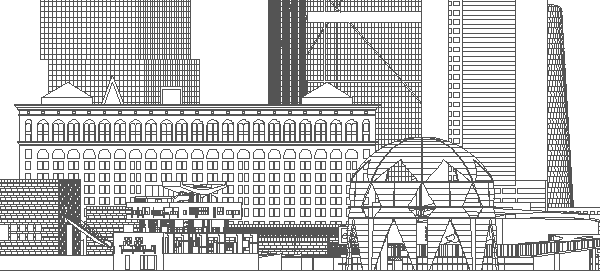 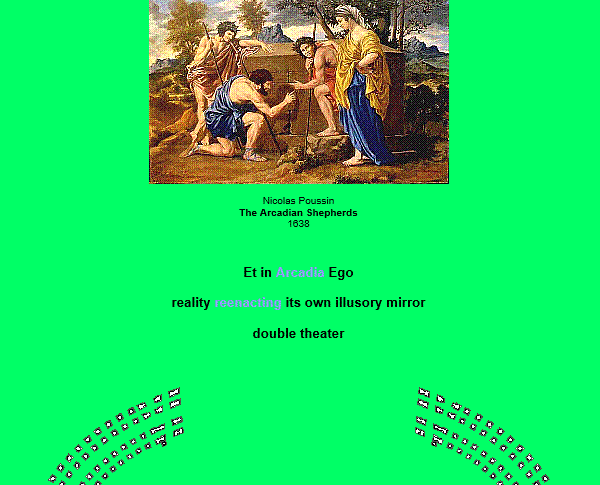 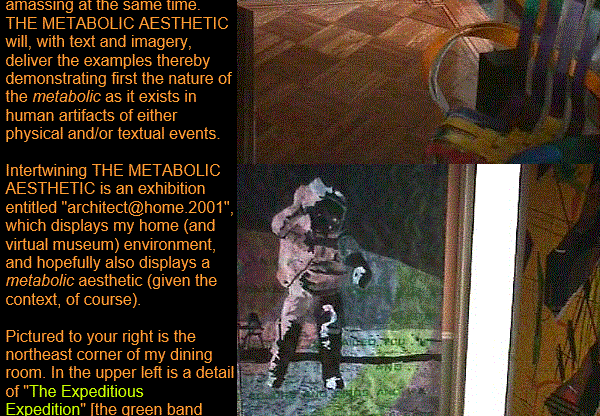 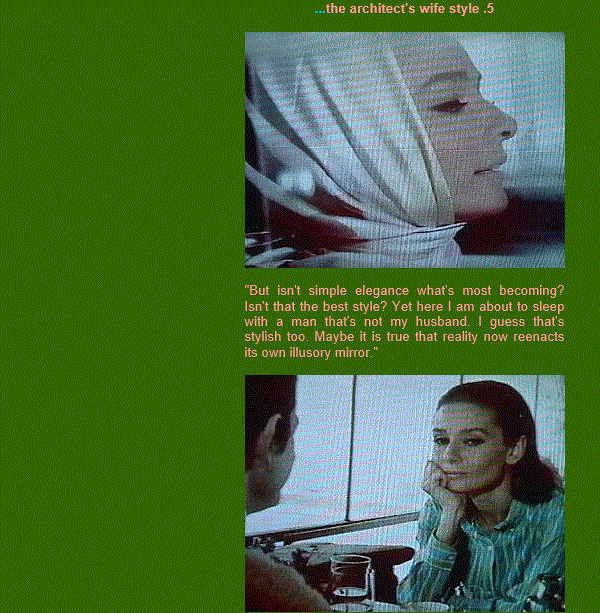 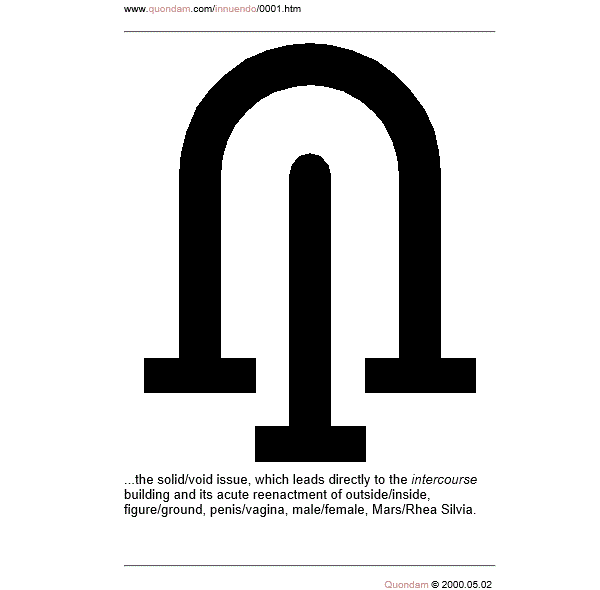 
|





